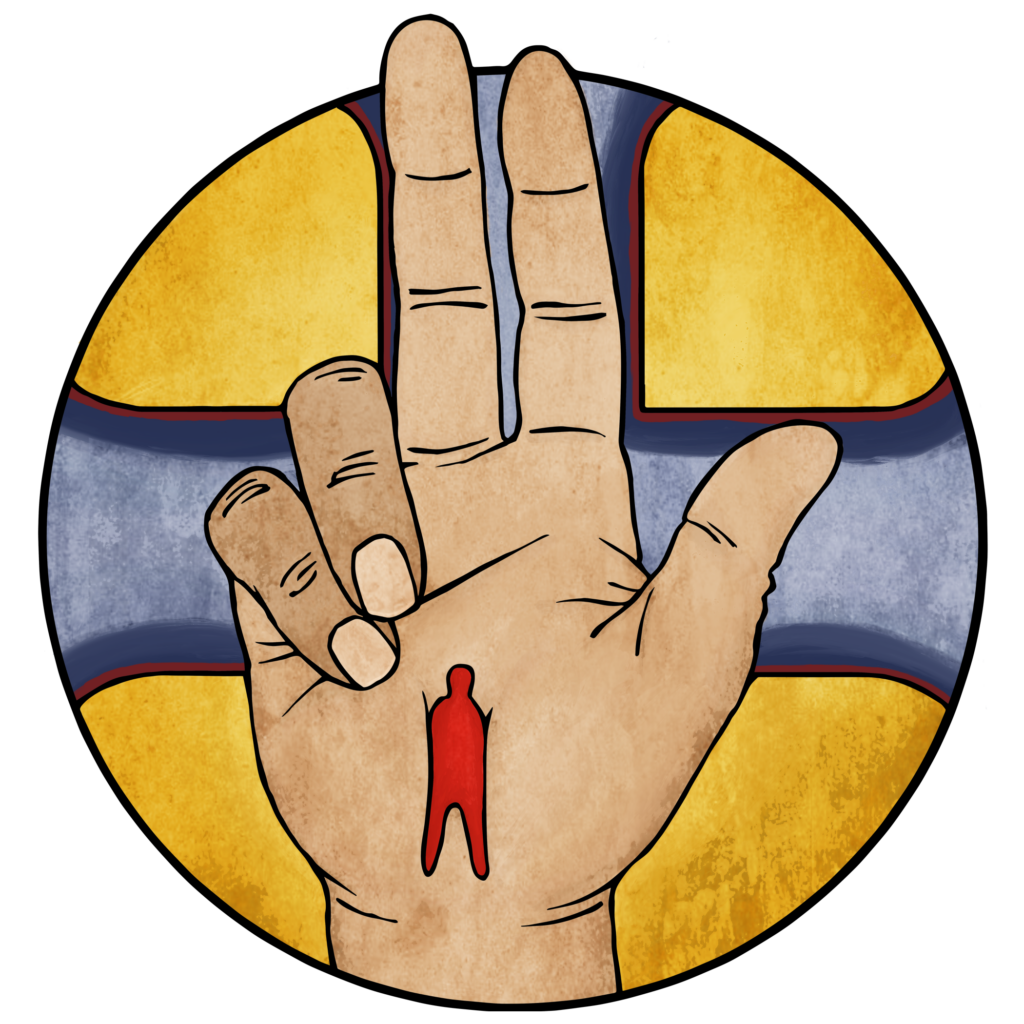August 3, 2024
Today’s Reading: Introit for Pentecost 11 – Ps. 78:23-25; antiphon: Ps. 78:72
Daily Lectionary: 1 Samuel 17:48-18:9; Acts 27:9-26
Man ate of the bread of the angels; he sent them food in abundance. (Introit for Pentecost 11)
In the Name + of Jesus. Amen. In college, I sang a beautiful piece with two friends called “Panis Angelicus,” Latin for “bread of angels.” If I had to describe the sound of it all, I would say that it was heavenly. Music and other earthly gifts can work on our emotions, transporting us out of the humdrum of life to feel and experience amazing things. That’s truly wonderful. But as “heavenly” as it all sounded to me, as good as it felt, the emotional high faded not long after the music stopped.
God gives us good gifts that make us feel good, but they’re not the be-all-end-all. When we talk about worship, much of our discussion often revolves around music. Some music, whether you’d label it traditional or contemporary, is highly emotional. That’s not necessarily bad, but it is when it drives everything. Worship isn’t about what we want. It’s not driven by our feelings, our likes or dislikes. Worship drives us to Christ.
In Psalm 78, the Psalmist recounts the great deeds of the Lord, which should be shared from generation to generation “so that they should set their hope in God and not forget the works of God, but keep his commandments” (Psalm 78:7). He reminds Israel that God brought them out of Egypt, parted the Red Sea, and fed them in the wilderness. Nevertheless, the people continually forgot it all.
Like Israel of old, we’re stubborn. We complain. We test God. We sin against Him. We forget His awesome deeds for us in Christ. The beauty of the Divine Service is that God remembers us. He gathers us in His presence. He reminds us of His awesome deeds for us. We confess our sins. We receive His word of pardon. We hear the Gospel, the story of Jesus and His saving works. We confess our faith in God: Father, Son, and Holy Spirit. We sing His praises.
How does it all culminate? God gives us the bread of angels. He gives us the Body and Blood of Christ for forgiveness, life, and salvation. The liturgy prepares us and carries us to that glorious culmination at the Lord’s Table, where we eat the bread of angels. It’s literally heaven on earth. We’re in the presence of our Lord, at His banquet, with Him both host and meal.
The antiphon from tomorrow’s Introit echoes, “With upright heart he shepherded them and guided them with his skillful hand” (Psalm 78:72). Tomorrow in the Divine Service, Jesus shepherds you and guides you with His nail-pierced hands to His Table. He opens the doors of heaven and rains down upon you food in abundance. It doesn’t get more heavenly here on Earth than that! In the Name + of Jesus. Amen.
King of kings yet born of Mary, As of old on earth He stood, Lord of lords in human vesture, In the body and the blood, He will give to all the faithful His own self for heav’nly food. (LSB 621:2)
-Rev. Joel Fritsche, director of Vicarage and Deaconess Internships and assistant professor of Exegetical Theology at Concordia Seminary, St. Louis
Audio Reflections Speaker: Pastor Jonathan Lackey is the pastor at Grace Lutheran Church, Vine Grove, Ky.
The Lutheran Confessions play a vital role in the church—both centuries ago, and today. But, do they apply to the daily life of a layperson? Pastor Andy Wright offers a resounding “yes” in his book, Faithfully Formed. He quotes, summarizes, and synthesizes key teachings from the Confessions, revealing their relevance in the daily lives of ordinary people.

